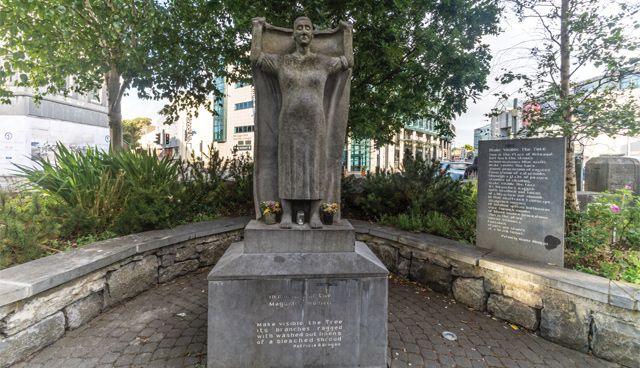Magdalen Restorative Justice Scheme update

A current priority for the Department of Justice and Equality under the Civil Justice and Equality pillar is the conclusion of the Magdalen Restorative Justice Scheme.
From the foundation of the State in 1922 until the final Magdalene laundry was closed in 1996, over 11,000 women and girls were held in the institutions run by Catholic religious orders.
In 2013, as per the recommendations of Justice John Quirke’s Magdalen Commission Report, the then Fine Gael and Labour coalition Government made the decision to provide a scheme of payments and benefits, on an ex gratia basis, to women who are determined to have been admitted to and worked in one of the 10 Magdalen laundries, St Mary’s Training Centre Stanhope Street or House of Mercy Training School Summerhill, Wexford.
In May 2018, following a recommendation made by the Ombudsman, an addendum to the terms of the 2013 scheme was published. This extended access to the scheme to women who worked in the laundries of the 12 institutions but were resident in one of 14 adjoining institutions.
Subsequently, a Restorative Justice Implementation Unit was established within the Department of Justice and Equality and tasked with processing applications and payments. Women who meet the terms of the scheme must “waive any right of action against the State or against any public or statutory body or agency arising out of their admission to and work within one of the 12 institutions concerned”.
The budget for the Magdalen Redress Fund in 2020 is €3,308,000. As of 18 September 2020, a total of €31.95 million has been paid to 803 applicants. Under the original scheme, 794 applications have been received (of which 726 have been paid), while under the 2018 addendum, 119 applications have been received (of which 87 have been paid).
In fact, the Magdalen Restorative Justice Scheme and the 2018 Addendum have now “largely concluded”. As yet, the scheme remains open to new applicants. However, the Department of Justice and Equality suggests that “it will be necessary to consider reviewing the efficacy” of the scheme and the addendum when cases under review by Mary O’Toole Senior Counsel (as per the Report of the Ombudsman on the Magdalen Restorative Justice Scheme) are brought to a conclusion.
A total of 215 cases have been identified for review by O’Toole, 30 of which are in progress “with some queries outstanding”. A decision will then be taken on keeping the scheme and addendum open for new applicants.
In June 2020, the first report of the Dublin Honours Magdalenes events (held in June 2018), authored by Katherine O’Donnell and Claire McGettrick and launched by then Justice Minister Charlie Flanagan TD.
One criticism made within the report is the noted failure to provide a medical card as committed to in the aftermath of the Quirke Report. “As many transcripts make clear, the women insist (repeatedly) that the Health Card, as recommended in Justice Quirk’s Magdalen Commission Report… and agreed to ‘in full’ by the Government, was not what was delivered to them by government under the Magdalen Restorative Justice Ex Gratia scheme,” it states. Flanagan subsequently instructed his department to liaise with the Department of Health to resolve the problem.





